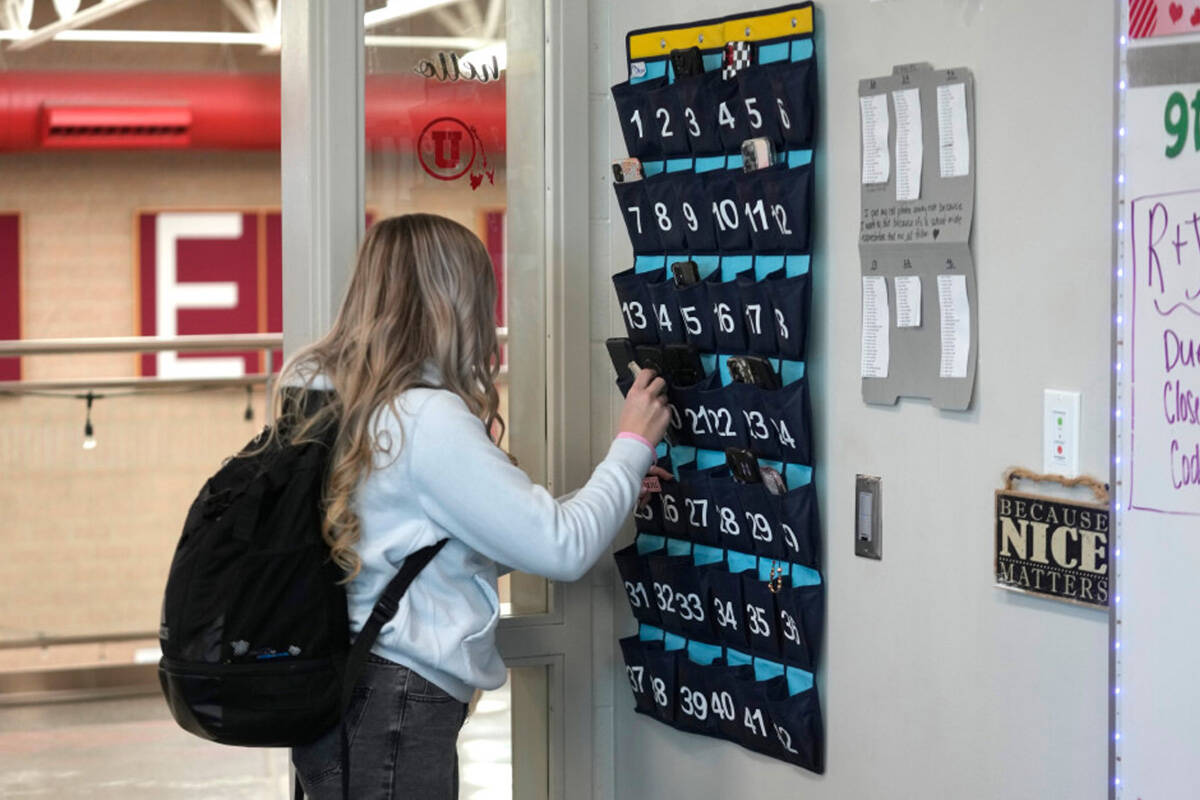EDITORIAL: Another reason to keep cellphones out of classrooms
Schools have long declared themselves to be gun-free zones. It’s time to make them cellphone-free zones as well.
In October, the National Bureau of Economic Research released a paper on Florida’s cellphone ban in schools, which began two years ago. That allowed David Figlio, a University of Rochester economics professor, and Umut Özek, a senior economist with the RAND Corporation, to study its effects. Florida’s data is particularly useful. Unlike most states, Florida tests students three times a year and has information on daily discipline.
Initially, the ban produced a spike in suspensions. The authors found that the “suspension rate more than doubled in the month after disciplinary enforcement started compared to the month before and was 25 percent higher compared to the same month in the school year right before the ban.” Black students and male students were more likely to face disciplinary action.
That might lead some to conclude that cellphone bans exacerbate the supposed school-to-prison pipeline. But there’s more to the story. In the second year, the increased disciplinary rates had largely dissipated.
The explanation is obvious. Students respond to incentives. After being accustomed to using their phones at school, some students tried to test the new rule to see if administrators would enforce this boundary. Once they realized that the policy had teeth, students realized they must take this directive seriously.
Every parent has experienced this, yet many in the education establishment act as if it’s a foreign concept. Students will adjust their behavior based on the expected consequences — or lack thereof. If adults prioritize empathy for rule breakers over enforcing the rule, students will become increasingly unruly. That has happened in Nevada, and it’s dangerous for students and staff.
In the end, eliminating cellphones boosted student learning. “We find significant improvements in student test scores in the second year of the ban after that initial adjustment period,” the authors wrote.
The gains were especially notable for male students and those in middle school and high school. That’s probably because older students are more likely to have phones.
Further, the cellphone ban “significantly reduced unexcused absences,” they wrote. Requiring kids to put down phones seems to have made them more engaged in school.
Amid all the talk about school funding, this study is another reminder that policy remains the key to boosting student achievement. The Clark County School District has implemented cellphone restrictions at schools, but anecdotal reports indicate it isn’t always enforced. That should change. And the remaining Nevada school districts should follow suit — and enforce their policies vigorously.

















